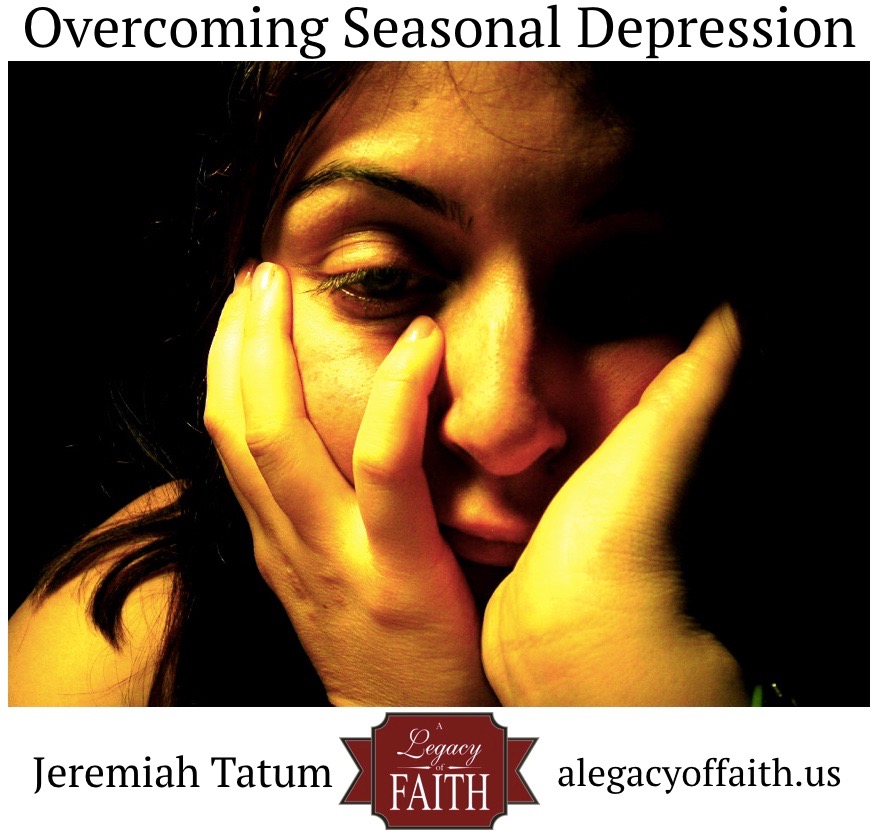Overcoming Seasonal Depression

Depression is real, and its effects are not only felt by those who have some type of mental health disorder. According to The Journal of Biological & Medical Rhythm Research, “Seasonal Affective Disorder is a mood disorder subset in which people who have normal mental health throughout most of the year experience depressive symptoms at the same time each year, most commonly in the winter.”
Winter can be a very difficult time of the year. The weather is harsh, the sun is rarely seen, and those who are elderly, alone, bereft, handicapped – really just anyone dealing with a difficult circumstance – are likely to be affected by this seasonal challenge. While there are chemical changes in winter that affect the mood, such as low Vitamin D that can be addressed by adequate supplements, what should we do when we just can’t get over the overall feeling of being down and out and spiritually weak?
In 1 Kings 19, we meet up with Elijah, God’s powerful prophet. Even though he had just experienced a great victory at Mt. Carmel over the prophets of Baal, we find him away from the public, alone and depressed and asking for God to take his life. He was exhausted because of Jezebel’s constant threats, and he felt as if he were the only person left trying to do what God wanted. In this moment God teaches Elijah how to be restored inwardly.
Consider some of the things Elijah heard:
1. “Arise” – (1 Kings 19:5). You won’t change your mood by hiding under the covers. You won’t feel bright and cheerful in the darkness. Even though it is cold and dark outside you need to force yourself into the habit of getting out there and facing reality. You will find that you can be just as active in winter as in the summer under the right conditions and with enough determination and will power.
2. “Eat” – (1 Kings 19:5). You may be saying, “Eating is all I have been doing since the candy bowl came out at Halloween.” That may be true. Then consider what you are eating and change the content. In a spiritual sense, we need the living bread which will give us spiritual life. There is nothing more uplifting than time in the Scriptures. Read the Psalms – they are hymns of praise and calls to God for deliverance in difficult times. You will be encouraged.
3. “Stand before the Lord on the mountain” – (1 Kings 19:11). Elijah was called into the presence of God so that he could see what the Lord was doing in his life. On the mountain, He discovered that God was not in the wind or the fire or the earthquake but in the form of a still small voice. It is important for us to faithfully come into the presence of God in all of life’s seasons. The winter weather will cause many to stay inside, but it’s better for us to face the elements and receive our sustenance in the quiet and peaceful whisper of God’s holy assembly.
4. “Anoint others” – (1 Kings 19:15-16). Elijah felt alone but in reality he was not. God told him there were still 7,000 faithful people. Among them were Hazael, and Jehu, and Elisha, who God called Elijah to anoint as either king or prophet. Sometimes the best way to overcome depression is to anoint other people to help you in your struggle. People are the closest thing on earth we have to being with the Lord. They are made in His image, and those who are faithful to Him will help us cling to Him in hope.
Are you depressed? Get up! Find nourishment! Seek the Lord! Fellowship with His people! If it worked for Elijah it can work for you!
Our God is a God of hope. Difficult seasons won’t last forever. The irises and aconites will push up through the snow once again, and we will feel the warmth of His Son and blessings of spring.
“And let us not grow weary while doing good, for in due season we shall reap if we do not lose heart.”
– Galatians 6:9
———————————————–



